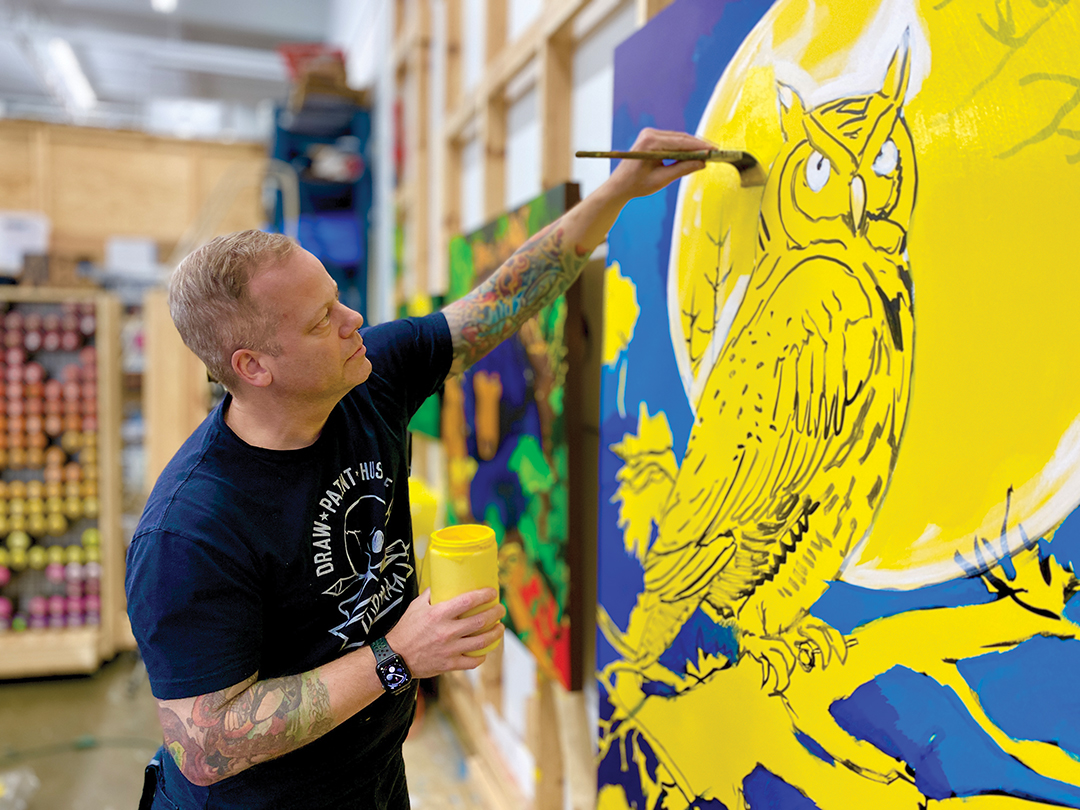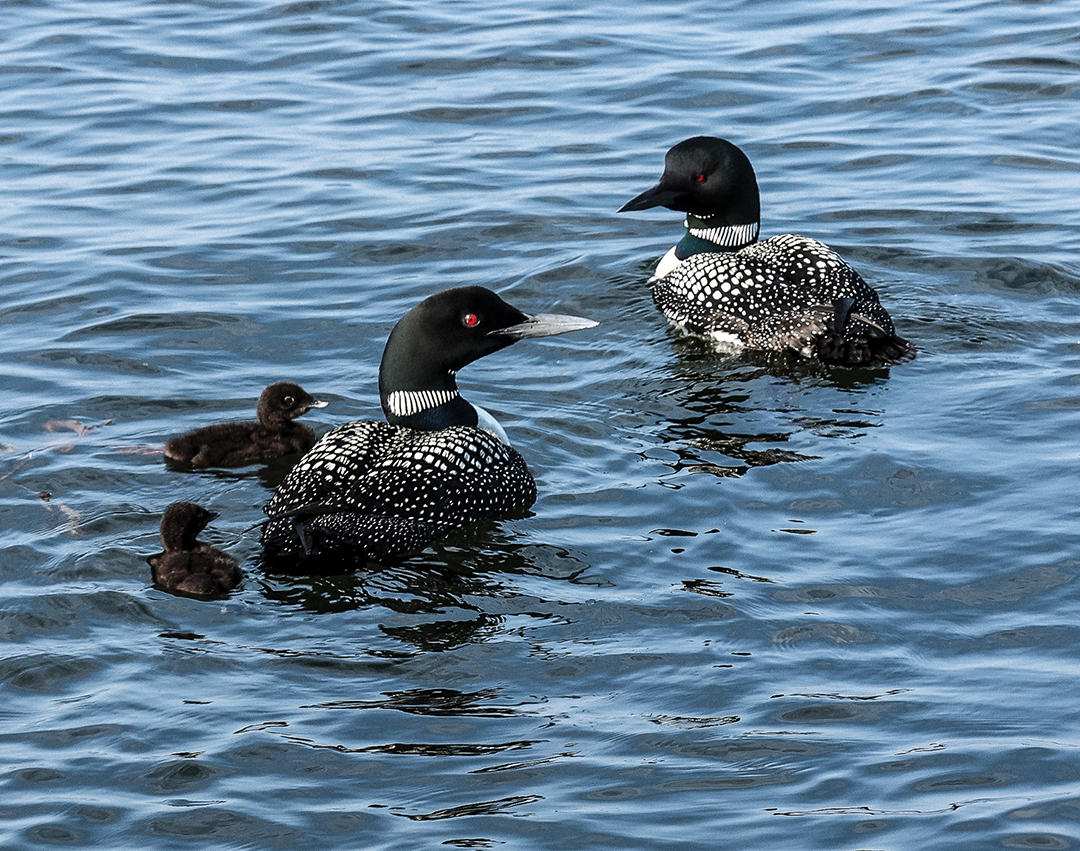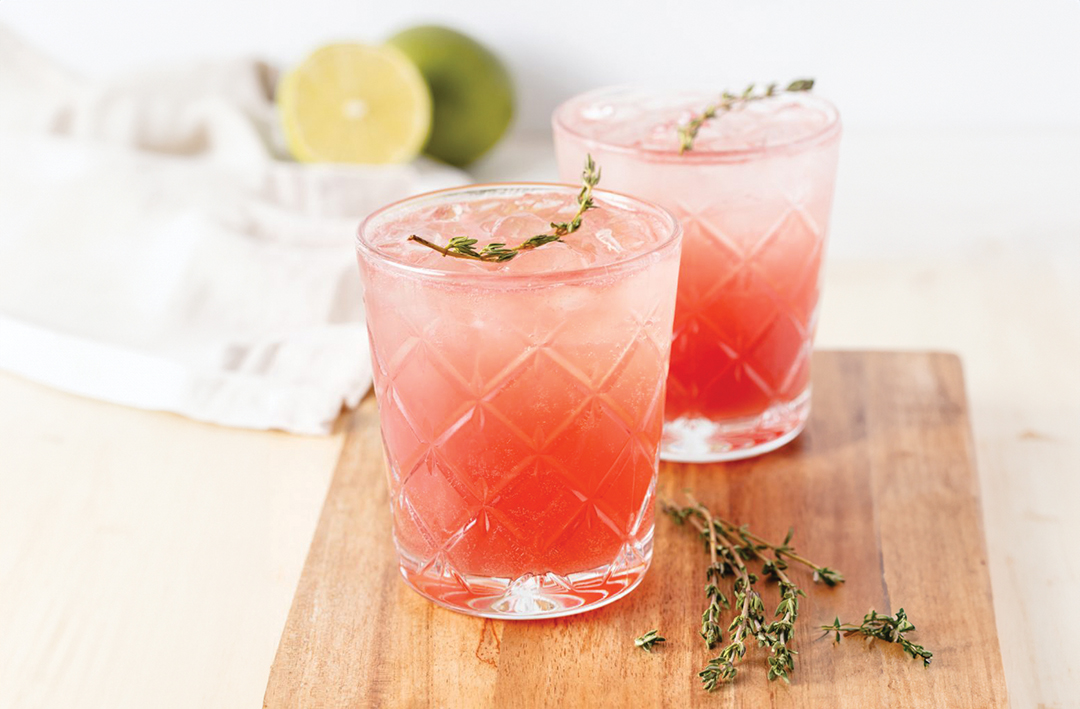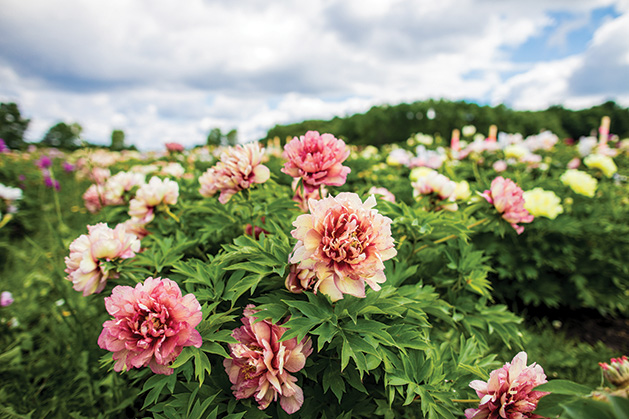
Photos: Chris Emeott
Becky and Keith Swenson grow acres of blooms on their Wright County farm.
The story of Swenson Gardens began with a passion for peonies. Wright County award-winning farmers Becky and Keith Swenson inherited their fondness for the flower from grandparents. When the couple bought their first house in Delano in the ‘90s, they agreed that peonies should be planted in the front garden but were looking for something beyond the classic pink or red variety.
Their search for unusually-colored peonies led them to Roger Anderson, who was known around the world as a prolific peony hybridizer. He not only sold them purple peonies for their front garden, but he later became their mentor as the Swensons began to think about starting their own business, which eventually led to the birth of Swenson Gardens.
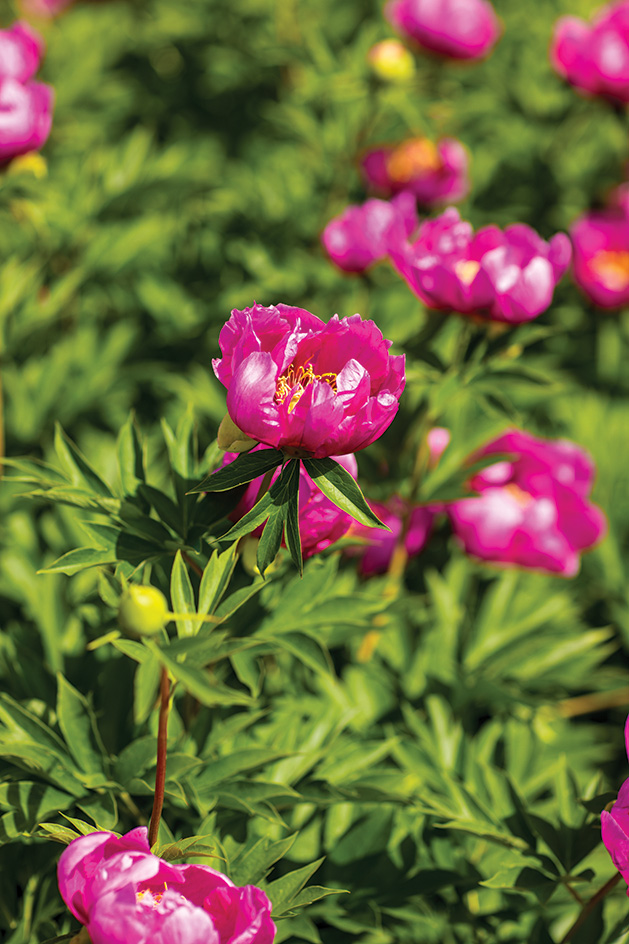
After studying under Anderson, the Swensons began to hybridize peonies for commercial sale. Hybridization is the process of breeding two different types of plants or animals together to create a new variety. Becky says it’s “part art, part science.”
She goes on to explain that while they still sell the classics, “our focus is new varieties; that’s what really sets us apart. We’re looking for something really striking,” she says. “It can take as long as 10 years.”
In addition to searching for new colors, the company is also looking to create hybrids that bloom unusually early or late, to help home gardeners
extend their peony season. Other desirable traits might be really strong stems, beautiful foliage or new colors.
From the beginning, Swenson Gardens has been a chemical-free enterprise.
“When we started the business our kids were six and four,” Becky says. “So we started off chemical-free for our own health. As the business grew, we kept that as one of our core values.”
The flower business is only just beginning to embrace some of the changes that other types of farming have been adapting over the last few decades. The Swensons are ahead of the curve not only in their large-scale chemical free commercial growing operation, but also in the way protect and nurture the soil on their farm.
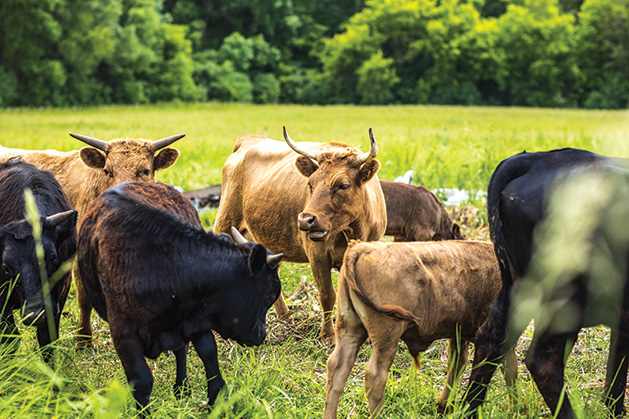
The Swensons keep a small heard of cattle known around the farm as the Fertilizer Production Team. The FPT is the source of the composted manure that is the beginning of their soil augmentation program. Cover crops are used to control weeds and put important nutrients back into the soil and the soil is rarely tilled. Weeding can be pretty labor intensive.
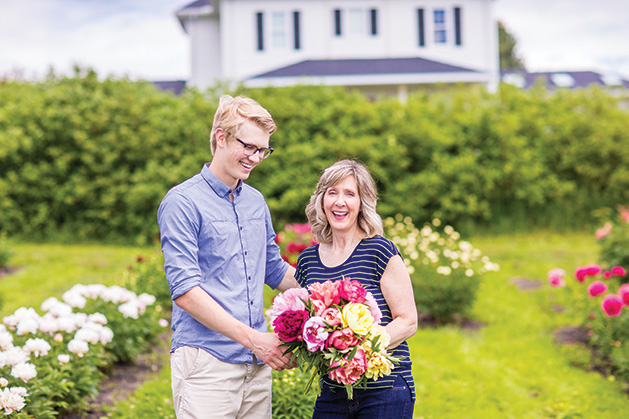
“We have a team of teenage boys to help with weed control,” Becky says. “You can see the Dairy Queen at one end of the farm … so we get them out there and have them weed towards the DQ.”
All of that keeps the soil healthy. Healthy soil equals healthy peonies.
They currently have about 8,000 plants, making Swenson Gardens the largest chemical-free grower of peonies in the world. In the fall, the farm ships bare root across the country and all over the European Union. The bare roots aren’t ready for shipping until they are three years old and are more expensive than some of the potted plants found at big retail outlets. However, the Swenson Gardens website warns that some of those plants may not be true-to-name and will have weak, slow growing root systems.
Rarer and unusual varieties of peonies can cost as much as two to three hundred dollars a piece, and some collector-type hybrids sell for as much as $1000 per piece and more.
Peonies are clearly a passion and an avocation for many people. So much so, in fact, that sometime after the flowers begin to bloom about mid-May, the Swensons play host to Peony Field Days. Check the website (swensongardens.com) for the exact dates and times. Each year, thousands of people come to see the acres of blooming peonies.
“In past years, we’ve had as many as 2,000 visitors here across the four days,” Becky says.
There will be about 200-250 varieties of peonies in bloom. Area garden clubs come to hear the Swensons talk about their growing techniques. Painters come and set up easels in the fields. Master gardeners come to refine their own advanced knowledge.
Becky says that she loves the event and really enjoys sharing with folks who travel, sometimes great distances, to talk about peonies.
“Last year we had a woman fly in from Texas,” she says.
The Swensons have become the largest commercial hybridizer of new varieties. One of those varieties is called the Tonka Series. Named for Lake Minnetonka, the Tonka Series includes varieties such as Tonka Pink, Tonka Peach and Tonka Berry. These flowers have a pleated petal that makes them very distinct.
“Since we sell internationally and all over the country, we see the Tonka Series as a way to introduce Lake Minnetonka to the world,” Becky says. “The name gives us a chance to talk about the history and be part of the future of Lake Minnetonka.”
The Swensons were honored last year as the 2019 Wright County farm family of the year at the University of Minnesota Farmfest. According to the University of Minnesota Extension Service website, Wright County has over 1400 farms, so that’s no small honor.
“It’s the first time a flower farm has been given the award,” Becky says.
The U of M rules for nomination state that nominees should be enhancing and supporting the fields of agriculture and actively involved with their communities. The family was truly honored to be recognized.
Who knew that the Swensons’ search for an unusual peony for their front yard all those years ago would lead the family on such an amazing journey? And even today, they are still searching for the perfect peony.
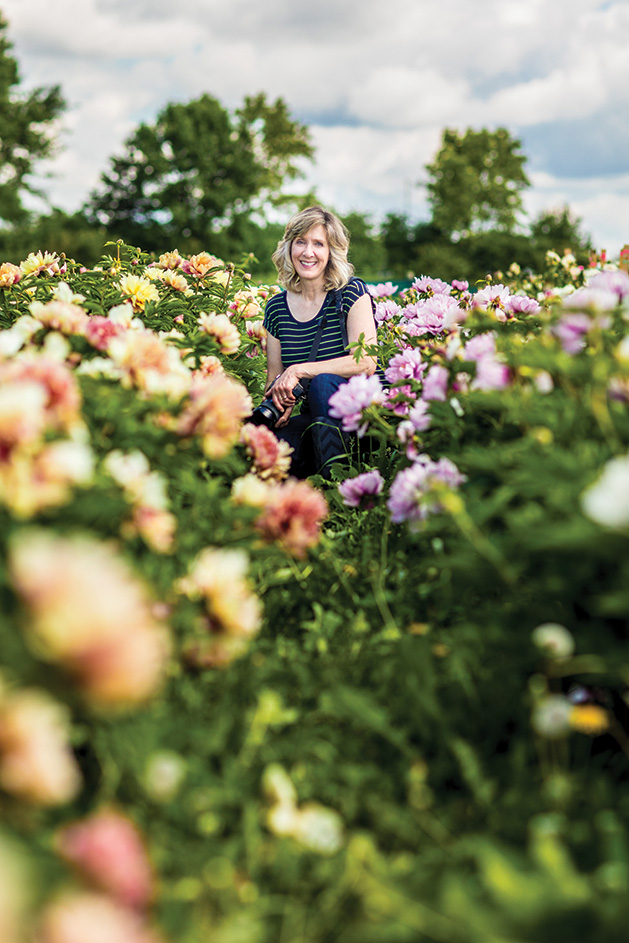
Peony Care Tips
- Peonies need drier soil than most plants. When planting, consider the water needs of the plants around them, too. You don’t want to have to choose between overwatering a peony or underwatering its neighbor.
- They want lots of sun … 8 hours is about right for most types, although some colors like a bit of afternoon shade to prevent fading.
- Peonies shouldn’t be crowded … they need their space, as air circulation is important to prevent common disease.
- Depth is important … not too shallow, but, also, not too deep. Dig an 18” deep hole about 2’ wide. Place the roots in the hole and add soil until the eyes of the root are about 2” below the top. Take the root out, dig down 6 more inches, and then put in fertilizer (manure and Milorganite are
recommended). Put the 6” of soil back in and pat it down hard to create a firm base. Next, put the root back in, eyes pointing up and fill the hole with dirt.
Facebook: Swenson Gardens
Instagram: @swensongardens

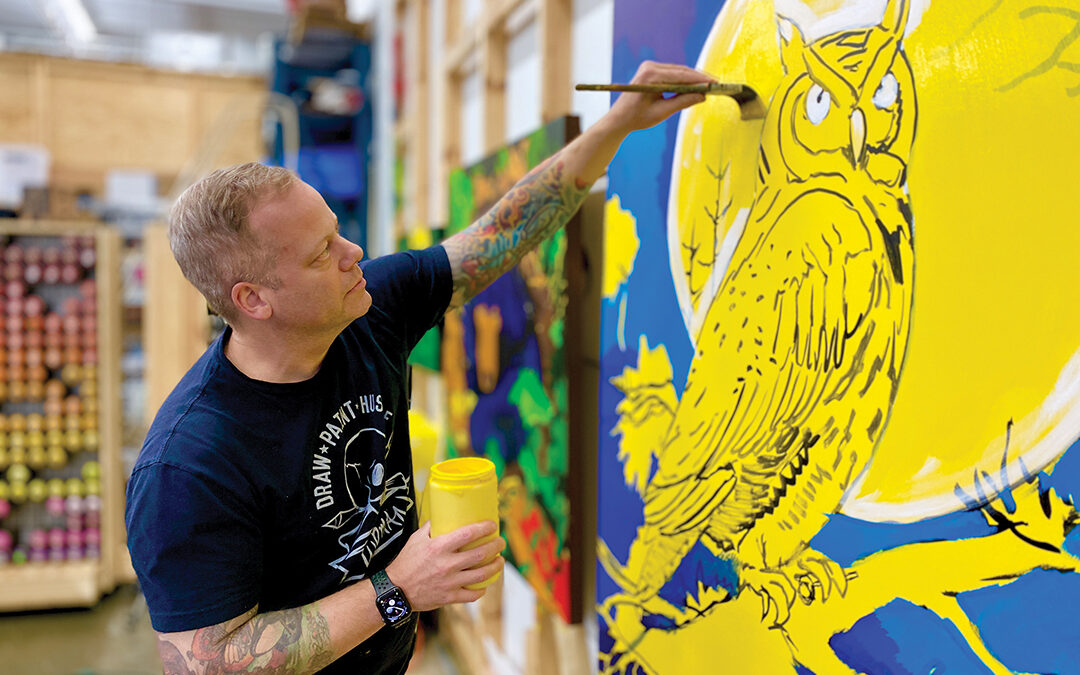

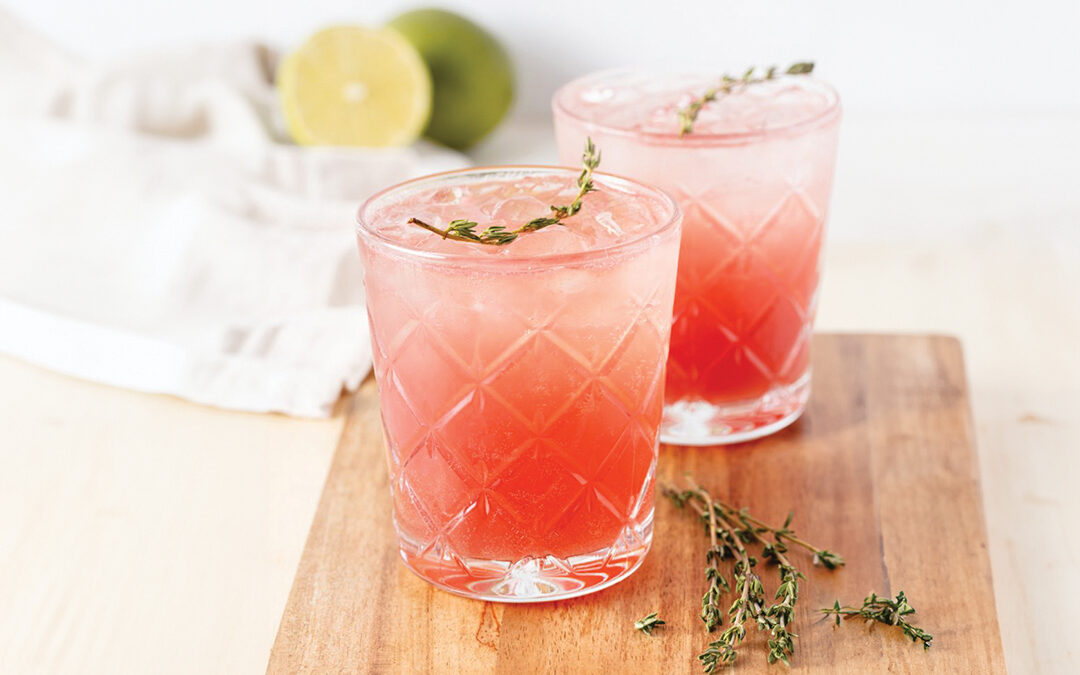


![Finding enough to do in her Long Lake garden isn’t difficult for Meg Cowden. She relishes the opportunity. “Gardening is a multifaceted life-giving hobby,” she says. “It provides you with the opportunity to slow down, observe [and] experience deep reverence daily, and it’s grounding.”](https://lakeminnetonkamag.com/wp-content/uploads/2024/04/Future_LKM_GardenTour_Meg_7743.jpg)
